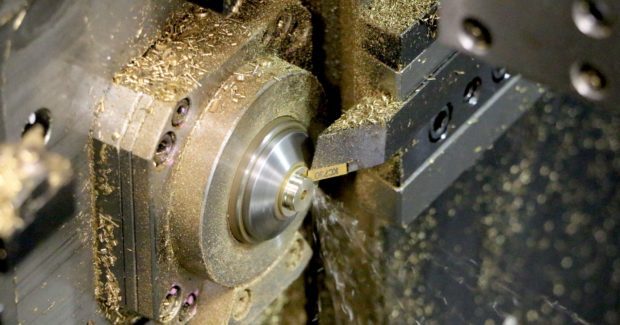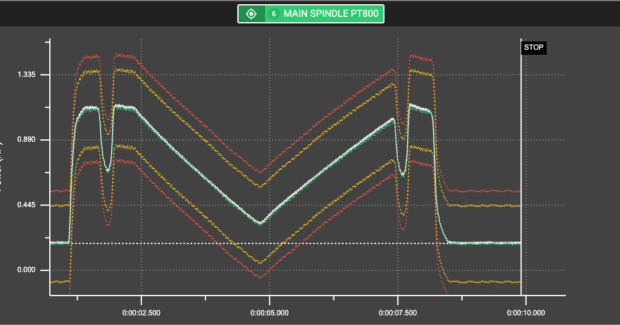Caron Engineering’s New Signature Analysis for CNC Machining
This capability is specifically beneficial for constant surface speed cutting operations, which are difficult to monitor due to the varying spindle RPM as material is removed.
Posted: February 8, 2022
(Wells, ME) Caron Engineering has a new signature analysis feature for CNC machining to accurately monitor the exact path of a tool in cut. This is a new feature added to their product line in both their TMAC (adaptive tool monitoring system) and DTect-IT (sensor/software monitoring suite) products. For constant surface speed cutting operations, which have historically been difficult to monitor due to the varying spindle RPM as material is removed, this capability is specifically beneficial.

Signature analysis allows monitoring these cutting processes where the material diameter changes consistently during a cut. The RPM varies as the material increases or decreases causing sensor fluctuations unrelated to the tooling. To monitor these cutting operations, the signature analysis software learns the entire path (signature) of a cut using any sensor type. The user will define boundaries around this signature, both above and below it. These boundaries define a window that the signature must stay within to satisfy a good cut. If any portion of the signature of a monitored tool extends beyond the upper or lower boundary, then an alarm is generated. It is a time-based analysis, so a consistent start time matching the cutting start time is crucial to success.
In manufacturing, this applies to such constant surface speed cutting as facing and turning operations on a CNC lathe, where the RPM is being adjusted automatically to maintain a proper chip load. The lathe starts cutting at the original diameter of the part and as it removes material, the diameter is consistently decreasing. Those RPM changes cause a spike in power which is difficult to monitor with typical tool monitoring. By learning the signature of the cut and setting boundaries around the learned signature, these cuts can be accurately monitored to ensure optimal surface finish.
“Signature analysis is not strictly used for constant surface (speed) cutting but can be applied to other areas of machine tool monitoring as well. There are situations when a customer wants to know when material is missing during a cut. With the other technologies we only know if this occurs early in the cut. Using signature analysis, we can determine missing material anywhere in the cut,” said Rob Caron (PE), President of Caron Engineering.
www.caroneng.com/products/tmac
















